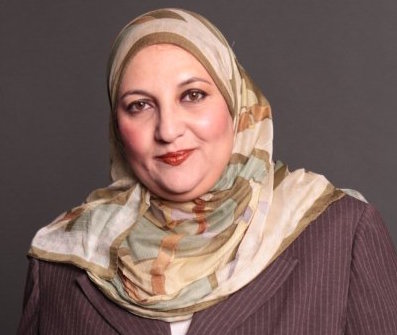Research@ARHU Faculty Spotlight
April 03, 2018

Associate professor Sahar Khamis has co-edited Arab Women's Activism and Socio-Political Transformation: Unfinished Gender Revolutions, published by Palgrave/Macmillan and with co-editor Amel Mili (University of Pennsylvania). This book...
Associate professor Sahar Khamis has co-edited Arab Women's Activism and Socio-Political Transformation: Unfinished Gender Revolutions, published by Palgrave/Macmillan and with co-editor Amel Mili (University of Pennsylvania). This book illustrates how Arab women have been engaging in three ongoing, parallel struggles, before, during, and after the Arab Spring, on three levels, namely: the political struggle to pave the road for democracy, freedom, and reform; the social struggle to achieve gender equality and fight all forms of injustice and discrimination against women; and the legal struggle to chart new laws which can safeguard both the political and the social gains. The contributors argue that while the political upheavals were oftentimes more prevalent and visible, they should not overshadow the parallel social and legal revolutions which are equally important, due to their long-term impacts on the region. The chapters shed light on the intersections, overlaps and divergences between these simultaneous, continuous gendered struggles and unpacks their complexities and multiple implications, locally, regionally, and internationally, across different countries and through different phases.
Department of Communication Professor Xiaoli Nan is the Principal Investigator on a $2.2 Million five-year grant from the National Cancer Institute of the National Institutes of Health. Entitled "Framing HPV Vaccination Messages for African American Parents," this grant is a collaborative effort, involving researchers from Maryland's School of Public Health and from UMB's School of Medicine--Nan's co-investigators include Cheryl Holt, School of Public Health, UMCP; Min Qi Wang, School of Public Health, UMCP' Shana Ntiri, School of Medicine, UMB; and Clement Adebamowo, School of Medicine, UMB.
Project Description: The 2014 President’s Cancer Panel called underuse of HPV vaccines “a serious, but correctable threat to progress against cancer.” The Cancer Moonshot Blue Ribbon Panel, more recently, identified expanding the use of HPV vaccines as a top priority for cancer prevention, especially in medically underserved populations. Effective communication is crucial to widespread adoption of preventive measures against cancer like the HPV vaccines. Built upon recent advances in communication and behavioral sciences, the proposed project seeks to to develop and evaluate a novel, theory-based message framing intervention to accelerate HPV vaccine uptake among African American adolescents. This project aims to 1) develop culturally appropriate messages framed in gains and losses and pretest these messages through community engagement; 2) determine whether/how the effects of message framing (gain vs. loss) on African American parents’ acceptance of the HPV vaccine are moderated by their prior beliefs about HPV and the HPV vaccine; and 3) evaluate the efficacy of a message framing intervention rooted in message targeting principles through a clinic-based randomized trial. Addressing a critical aspect of health disparities disadvantaging the African American community, this research represents a systematic and timely effort to address the national urgency of optimizing communication strategies for promoting HPV vaccination among key stakeholders.

